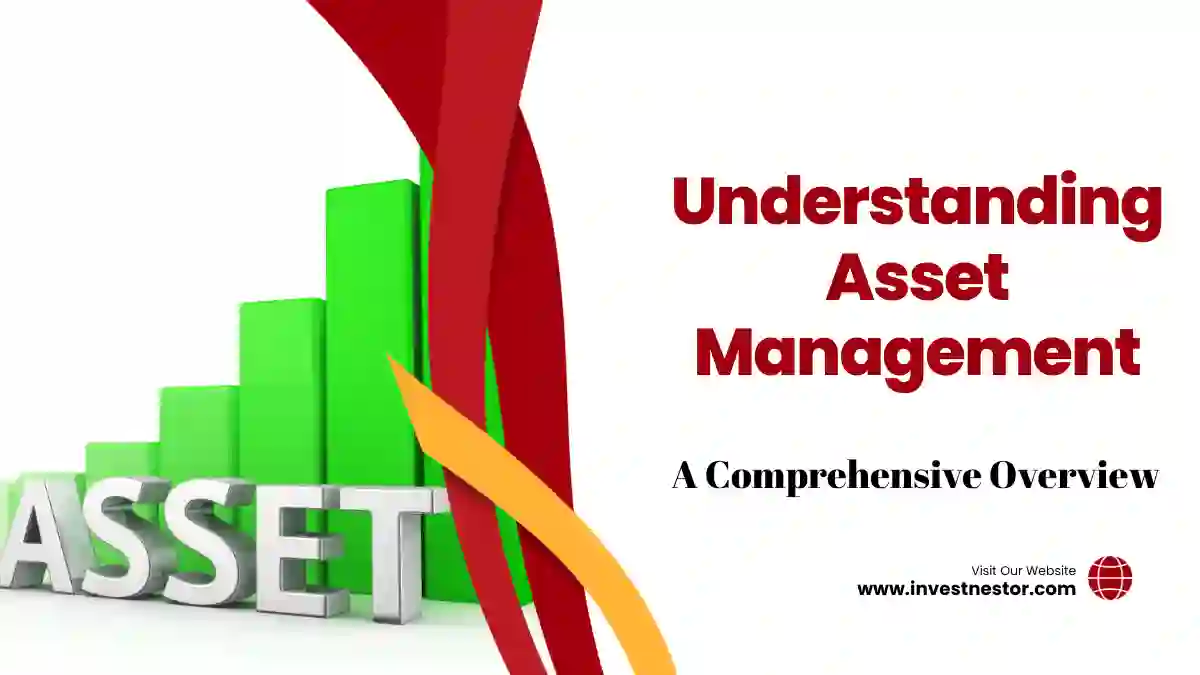
Top 10 Biggest American Stock Trading Apps and Stock Exchanges
Stock trading apps are now fully functioning trading platforms where any individual can easily buy, sell, invest, or even trade stocks, ETFs, commodities, and more. If you are looking for the best trading apps in the USA or a few popular trading apps that allow you to earn, here is a list where you can find the best option.
10 Best Stocks Trading Apps | Best zero-commission trading platforms
1. Ally Invest
Ally Invest was founded in 2005. It is a great choice for traders and investors because of its low cost, low minimum, and solid trading platform. Ally Invest is a popular trading app in the USA that is regulated by top-tier authorities like the SEC and FINRA. It offers low trading fees and non-trading fees. The opening process of a trading account on Ally Invest is easy and fully digital. Also, you get high-quality educational tools if you are a beginner investor.
Pros
If you look at its pros, they are- it is an easy-to-use and intuitive platform with low cost and low fees. Here you will get financial consolidation, and you get a chance to earn interest on your cash balance. If you want to trade in foreign exchange, it is a great platform.
Cons
The biggest con of this trading platform is that it does not support all available trading products. Also, you can trade only on the US market and for forex trading, you need to open a separate account. Also, Ally Invest does not provide cryptocurrency or futures trading. It means it is not an all-in-one platform for traders looking for stock trading, crypto trading, and futures trading all in one platform.
2. Charles Schwab
Charles Schwab is another stock trading app whose minimum deposit and balance requirements vary depending on the investment vehicle you choose. If you are an active investor, you have to start by depositing a minimum.
Pros
Charles Schwab doesn't charge commissions for stocks and ETF trades; there are no transaction fees for over 4000 mutual funds. It also provides you with an extensive retirement tool. You also have the option to receive on-demand advice from a professional advisor or Schwab expert. This platform also gives you Schwab intelligent portfolio or robo advisor service with a premium version available for a fee. You can also access 24/7 customer support. The biggest advantage of Charles Schwab is it has 300 physical branches across the United States, which provides in-person support to its users.
Cons
Although there are no commission fees for stock and ETF trade, it does charge a commission fee for specific transactions. If you want to utilise Schwab intelligent portfolios or the robo advisor version, they come with additional services where the one-time fee is $300 and $30 per month advisory fee. With this cost, you get unlimited 1:1 guidance from a certified financial planner, access to interactive planning tools, and a personalized road map to achieve your financial goals.
3. Fidelity investments
Fidelity Investment provides third-party research tools from Thomson Reuters, net Davis Research and Recognia. Here, investors get to utilise ETFs, options, stocks, research tools on fidelity apps and website
Pros
Fidelity gives commission-free trading for stocks, ETFs, and options, and there are no transaction fees for about 3400 mutual funds. Sometimes, it also offers limited-time special offers for new or existing customers. Here, users can use educational tools and resources to understand how to invest in the financial market. Fidelity Investment has over 100 branches all over the United States, where users can get face-to-face support if needed.
Cons
If you want to utilize its advisory services, you pay 0.35% of the annual advisory fee for balances of 25,000 and above. This also covers automated investment management services that are provided by robo-advisors. The platform also reports glitches during heavy trading days, an important consideration.
4. Robinhood
Robinhood is one of the first brokers who offered a zero-commission trading platform, and also it doesn't require any minimums to open an account or start investing.
Pros
There is no minimum deposit requirement to open an account and start investing with Robinhood. Also, the platform offers commission-free trading. If you are a new user, you may also receive free stock as a welcome bonus when you open an account with Robinhood. If you look at the investment options provided, they are investment options, trading in stocks, ETF options, and other instruments. It also offers learning tools, educational resources, tutorials and other materials to enhance financial market knowledge.
Cons
Robinhood offers commission-free trading. It is also important to offer commission-free trading, but it is also important to know that it also applies fees outside of commission. This may include maintenance fees, transfer fees, or other transactions or account activities charges.
5. Vanguard
Vanguard is known for its low-cost investing options, founded by Jack Bogle, who also invented index funds.
Pros
Vanguard does not charge a commission fee for trading stocks and ETFs. There are no transaction fees for 3000 mutual funds. The biggest benefit of Vanguard is that it has one of the largest selections of ETFs and mutual funds. If you want to have a robo-advisor service, you may get a 90-day free trial.
Cons
If you want to invest in retirement funds by Vanguard, you may require a minimum investment of $1000. You must pay $20 for free annual service for IRS and brokerage accounts. If you want to enrol for robo advisor service or Vanguard digital advisor, you must make a minimum investment of $3000. After the 90-day free trial period, it charges a 0.20% advisory fee.
6. E-trade
E-trade is widely used by active stocks and options traders that offer zero online stock and ETF commissions. It also has thousands of mutual funds for long-term investors that can be traded with no transaction fees.
Pros
E-trade provides commission-free trading for US-listed stocks, mutual funds, ETFs, and option trades. However, a standard fee of $0.65 per contract is charged for option traders. It also offers screening and pre-build portfolios for ETF and mutual funds investors. It has no minimum deposit requirement for standard brokerage accounts or IRAs.
Cons
The biggest disadvantage of trading with E-trade is that it has the highest margin interest rate among the best stock brokers. Also, in the beginning, e-trade allowed its customers to invest directly in many foreign extra exchanges, but this service is no longer available for online trades.
7. Merrill
Merrill Edge self-directed is a top brokerage that offers special perks like zero commission, quality third-party research and premium customer service.
Pros
Merrill Edge self-directed is one of the best stock brokers in the US, which offers commission-free trading for online stocks, ETFs and option trades. However, a standard option contract fee of $0.65 per contract is applied. It also has a gold standard for banking loyalty programs where Bank of America preferred reward members can secure rate and fee discounts for most of the bank products.
Cons
If you look at its downside, it is that its margin rates are competitive with other stock brokers. It must improve its trading platform, as other stock brokers can easily beat it.
8. Webull
Webull is a mobile-focused brokerage currently on the list of best stock brokers, best option trading platforms, best free stock trading applications, and best investment applications.
Pros
Like other online brokers, Webull offers zero commission on stock and ETF trades. You can even trade fractional shares on Webull, one of the great features. This also makes it one of the most popular trading applications in the US. Apart from this, webull doesn’t even charge assignments or exercise fees, making it one of the best brokers for options trading.
Cons
The biggest con of Webull is that it doesn't offer investment in mutual funds, bonds, certificates of deposits, futures, or even forex. It doesn't even offer educational resources or other tools provided by other brokers.
9. Uphold
Uphold is a trading application for stocks where you can buy and sell equities using bank accounts, credit cards, debit cards, Google Pay and Apple Pay. Here, 50 US stocks are listed, and 210 cryptocurrencies are added. You can even trade 27 national currencies, instrumental assets like carbon tokens and four precious metals.
Pros
The biggest benefit of trading with Uphold is it provides insurance that adds an extra layer of protection. It also has a FinCEN license, which shows its commitment to compliance with anti-money laundering regulations. Here, users can trade in a variety of financial instruments. It has a low minimum deposit of only $10.
Cons
The biggest disadvantage of Uphold is that it needs better customer support. The platform features variable spread, which means these spreads are mentioned to be higher for low liquidity coins.
10. TD Ameritrade
It is the best stock app because it provides analysis reports to its users and services like portfolio Management by experts.
Pros
It provides commission-free online trading of stocks, ETFs, and options. It also offers goal-based portfolio Management. Here, you can access real-time quotes, charts and analysis reports.
Cons
If you want to do broker-assisted trading, you must pay higher fees than self-directed or online trading.
What are the major US stock market exchanges?
1. New York Stock Exchange
Because of its long history and prominence in finance, the NYSE signifies the U.S. financial sector. Over 2,400 public companies are traded in the market. Since it is a hub for the trading of publicly traded company shares, the NYSE plays a crucial role in the worldwide economy. This is a significant economic indicator.
2. Nasdaq
The Nasdaq Stock Market is the second most significant stock exchange in the United States. It focuses mainly on I.T. businesses such as Microsoft, Intel, And Apple. The only way to access it is via an internet broker because it's entirely electronic. Many younger tech startups choose to list on Nasdaq.
3. CME Group
The Chicago Mercantile Exchange (CME Group) allows you to trade futures and options, not individual stocks. It's famous for commodities like agriculture, energy, and metals. Unless you want to get into the future, the CME Group won't impact you much as a stock investor.
4. NYSE American
Formerly AMEX, NYSE American is a smaller exchange that caters to emerging companies, especially in the biotech, technology, and energy sectors. Over 600 companies trade here, but they tend to be riskier, so do your research. Like the other exchanges, you'll place trades through an online broker.
With so many great companies spread across these exchanges, you've got a lot of opportunities. Do some digging into different brokers and the kinds of tools, research, and fees they offer. Then, you can confidently jump in and build a solid portfolio.
How to Choose the Right Stockbroker (Key Features)
Here is a list of some of the key things to consider when comparing online brokers:
Commissions and Fees
Many brokers now offer commission-free stock and ETF trading, although some charge for options, mutual funds, and penny stocks. See how the broker generates money—commissions, account fees, cash balance interest. More money may work for you with lower costs.
Investment Choices
The finest brokers offer stocks, bonds, ETFs, options, mutual funds, futures, F.X., and cryptocurrency. Whether you trade U.S. or global equities, ensure your broker offers asset classes and marketplaces.
Platforms and Tools
Find a simple platform with stock analysis, portfolio management, and trading tools. Charting, research, virtual trading, and customizable notifications can improve investing decisions. Manage your accounts anytime, anywhere with mobile apps, desktop software, and web platforms.
Customer Service
Support is crucial. If you require broker services or account assistance, look for live phone, email, and chat support. Brokers should offer educational resources to help customers learn the basics and follow trends.
Conclusion
There is an online exchange for everyone, no matter how experienced or new to trading you are. Find the investor that best fits your needs and experience level. Remember that the cheapest broker isn't necessarily your best option.
Before choosing a broker, take your time, be bold, and open a trial account to try various sites. Hire a broker who will act in your best long-term interests. Together, you can achieve greater financial success. Let's hope that investment pays off in 2023!
FAQs
What are the benefits of working with a low-cost online broker?
Low-cost online brokers lower trading expenses so you can keep more profits and improve your overall performance with investments.
How should I prepare myself before I begin stock trading?
Research is essential before you begin trading stocks. Study up on the stock market and other investment options. Remember to create a trading strategy.
Which five online stock brokers will be the best in 2023?
Charles Schwab, E-TRADE, T.D. Ameritrade, Interactive Brokers, and Fidelity Investments are the top 5 online stockbrokers for 2023. These brokers were chosen for their great trading interfaces, cheap fees, and various investment choices.
Why this year is a good time to invest in stocks?
Despite market volatility, investing in the stock market in 2023 might help you strengthen your financial situation and even generate positive profits.





0 Comments
Add a comment